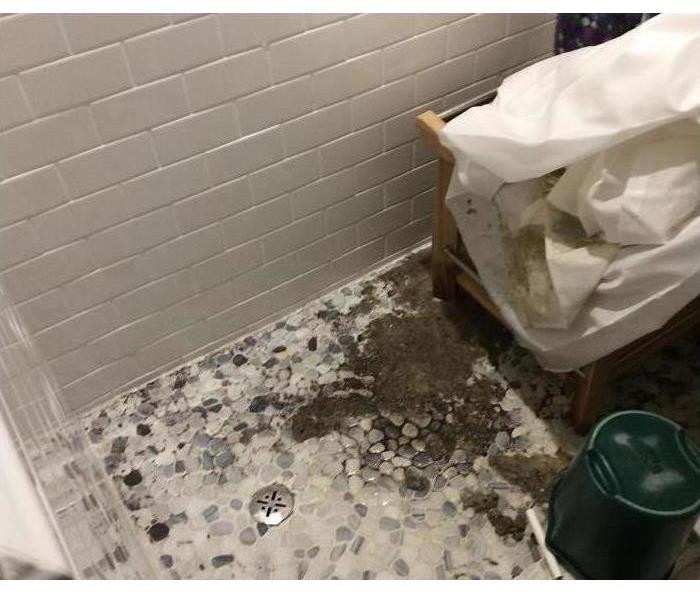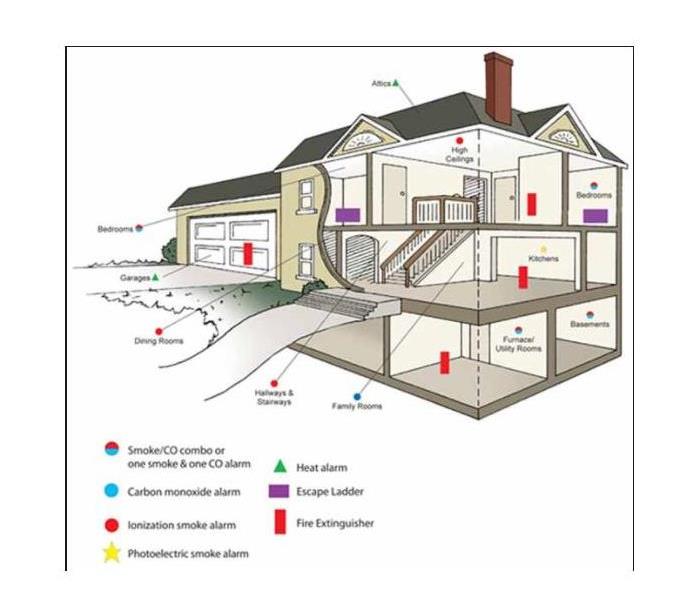Raw Sewage Spill? Call the Professionals
2/4/2020 (Permalink)
Raw Sewage Spill? Call the Professionals
Whether you’ve smelled it while driving by a spill or you’ve had it backed up in your home or business, the stomach-churning odor of raw sewage is hard to forget. And with the heat we get in Palm Desert it gets even nastier. Unfortunately, the terrible smell isn’t the worst of it.
What is raw sewage?
Raw sewage is waste that hasn’t been cleaned and treated and originates from residential, institutional, or business buildings. It isn’t just liquid; it can also contain toilet paper, feminine sanitary products, and other human wastes. It’s also known as black water, which is highly contaminated and can lead to illness, disease, and infection.
What are the health risks?
Raw sewage is a combination of nasty stuff. It’s the ideal breeding ground for almost every kind of bacteria, virus and microorganism. Raw sewage contains an almost endless list of very harmful pathogens and exposure to them will make you violently ill or even kill you.
What should I do if I’m exposed to sewage?
- Most important: Wash your hands well with clean water and soap before you eat or smoke. Use a stiff soapy brush to clean under your nails.
- Do not touch your nose, mouth, eyes or ears with your hands, unless you have just washed.
- Shower and change out of any contaminated clothing.
- Do not keep contaminated clothes with your other clothes.
- You may need up-to-date shots for tetanus and diphtheria. If you want to know about shots to prevent Hepatitis A, ask a nurse or doctor.
What protective actions do professionals take when dealing with raw sewage?
It’s critical that raw sewage is kept from coming into contact with skin, especially cuts, sores and any mucus membrane associated with the eyes, ears and nose. That means the pros at SERVPRO of Palm Desert cover up completely in PPE (personal protective equipment) which includes full body suits, full face respirators, gloves, rubber boots, etc. We also keep a ready stock of respirator and sanitizer wipes, as well as access to an eye wash station and a change of clothes.
Who should I contact?
If you’ve experienced a sewage backup, take action immediately! Keep the number of SERVPRO of Palm Desert handy at all times. Water damage restoration is often needed along with sewage cleanup since the dampness can get into floors and walls and may cause serious threats to your building’s foundation.
What are some helpful tips?
Keep pets, children, and the elderly away from the contaminated area as they’re usually more susceptible to germs and bacteria. Thoroughly wash any salvageable items immediately. Although it’s not always possible to prevent raw sewage backups, you can reduce the chances of one occurring by having your drain lines inspected at least twice a year. Also, be sure to repair slow drains quickly, don’t pour grease down the drain and have your pipes flushed regularly.





 24/7 Emergency Service
24/7 Emergency Service

